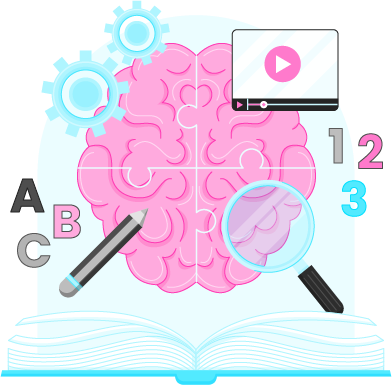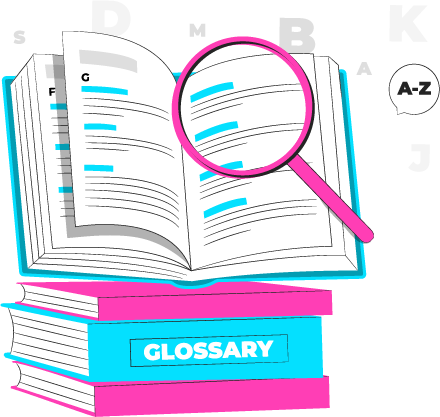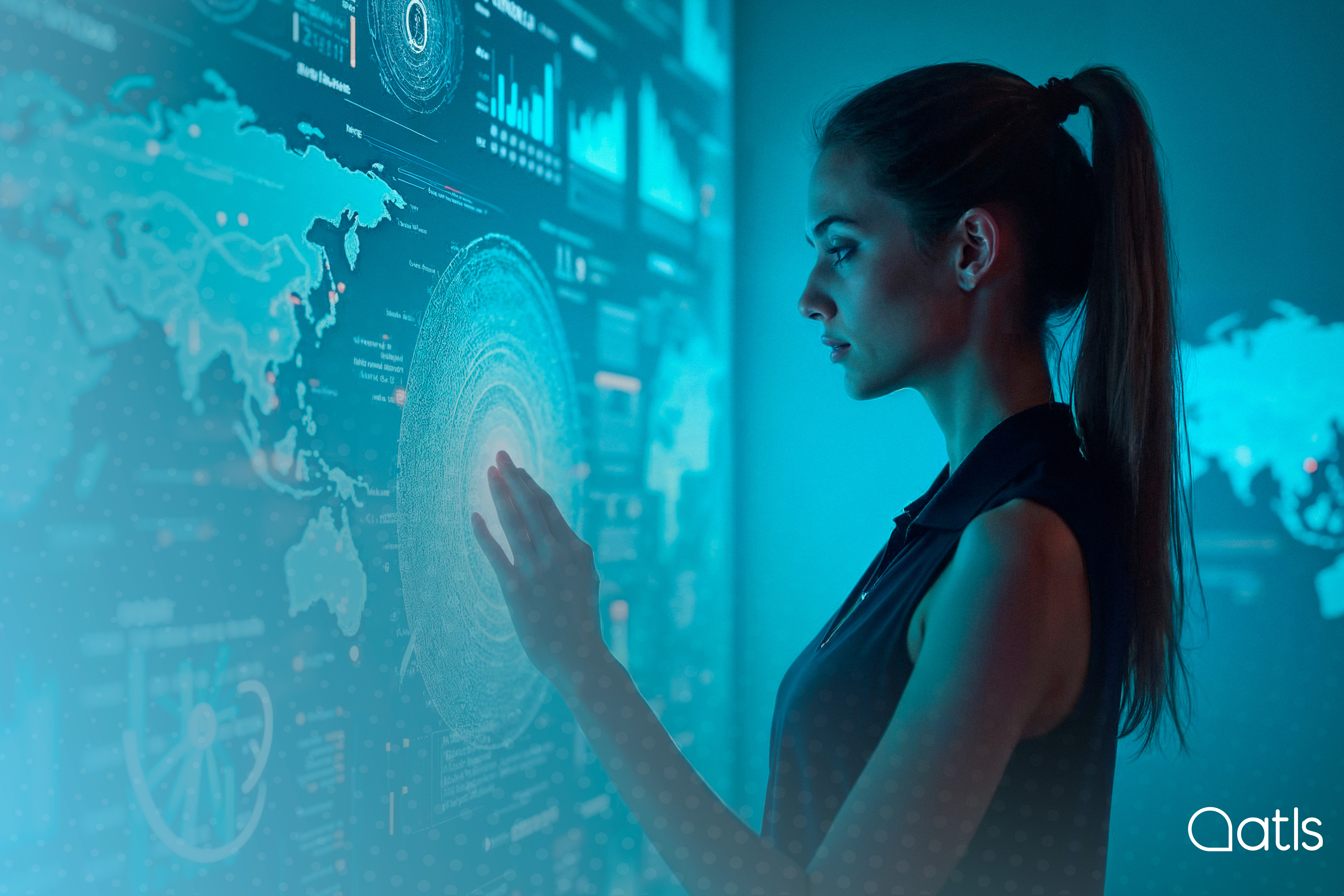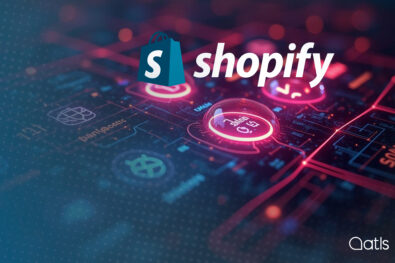In the world of professional translation, efficiency and consistency are key factors to ensure accurate and quality content.
To achieve this, language assets play a fundamental role. These resources include translation memories, glossaries and style books, which optimise translation processes, reduce costs and guarantee uniformity in translated texts.
Language assets as a strategic resource for the company
A language asset is all the content generated internally, which is often reused by different teams to ensure consistency and efficiency in communication. It is a valuable resource within a company, comparable to any other good or corporate knowledge.
At ATLS, we contribute to nurturing and expanding this asset through our translations, ensuring that the information maintains its accuracy, uniformity and alignment with the company's identity in any language.
Translation memories: Intelligent reuse of content

Translation memories are databases that store previously translated text segments, allowing them to be reused in future projects. Its main advantage is the reduction of time and translation costs, as it avoids translating from scratch repetitive or similar content.
This resource also contributes to the homogeneity of the content, ensuring that the same sentences or terms are translated consistently in different documents.
Translation memories are particularly useful in large volume projects or in those that require periodic updates, such as product catalogues, technical manuals or corporate documentation.
Thanks to its implementation, large volumes of text can be managed efficiently without compromising on quality or terminology consistency. They also promote the productivity of the translation team by reducing the time spent searching for previously translated terms and structures.
Another key benefit is the improvement in the quality of translations, as they allow professionals to work on a pre-existing basis, minimising errors and ensuring that key terms and expressions are kept uniform in all languages.
In addition, translation memories can be adapted and evolved with each new project, updated in real time to reflect changes in the terminology or the customer's style preferences.
With the Advanced AI technology from ATLS, the translation process can be carried out completely automatically, which reduces translators' workload and optimises delivery times. Our advanced AI analyses the content, identifies previously translated segments and applies them intelligently, ensuring faster and more accurate translation.
This integration not only optimises performance, but also allows you to scale multilingual projects without losing quality, providing efficient solutions for companies that require constant and large-volume translations.
Glossaries: Terminology accuracy
Glossaries are lists of key terms with their equivalences in different languages. They are essential to maintaining the terminology consistency in specialist sectors such as legal, medical or technical, where an incorrect term can completely alter the meaning of a text.
Glossaries not only help avoid ambiguities and errors in terminology, but also streamline the translation process by providing clear and consistent references to translators. By working with a well-structured glossary, greater precision is achieved in technical, regulatory and commercial texts, which is essential for sectors with high standards of accuracy.
At ATLS, we use custom glossaries that are integrated into the AI assisted translation workflows, ensuring that c
These glossaries are also dynamic and can be continuously updated to adapt to changes in sector terminology, ensuring that the company's communication is always aligned with its linguistic evolution and comercial.ada term is translated correctly and according to the customer's preferences.

The implementation of specific glossaries by industries or companies allows each translation to reflect the customer's corporate identity, maintaining linguistic consistency in all its materials, from websites to technical documentation and marketing content. With the combination of our glossaries and the power of ATLS' Advanced AI, we guarantee more accurate, efficient translations that are aligned with each company's communication strategy.
Style guides: combine brand voice
A style book is a guide that defines the standards and guidelines of a company's writing and style. In translation, these documents are essential to ensure that the tone, structure and brand identity are kept uniform in all languages.
Style books not only establish rules on grammar and spelling, but also include guidelines on tone, register and specific terminological preferences of the company. This is essential to building a strong and recognisable brand identity in any language, ensuring that all translated texts convey the same values and style of communication.
At ATLS, we work with custom style books for each customer, allowing us to adapt translations to the culture and target market without losing the essence of the brand. These documents are especially useful for sectors with specific requirements, such as finance, technology and fashion, where accuracy in communication is key to maintaining the public's confidence.
Thanks to the combination of our language assets with advanced AI tools, ATLS ensures that each text accurately reflects the brand's identity in line with our customers' values and communication style. In addition, by integrating these style books into our AI-assisted translation tools, we ensure a consistent and automatic application of the guidelines of each company, reducing the margin of error and optimising translation processes.
Advanced AI from ATLS: The translation revolution
The combination of our Advanced AI with strategic language assets is transforming the way companies manage content translation. Our technology not only optimises delivery times, but also reduces operational costs and improves accuracy in text localisation.
Thanks to its ability to learn automatically and process natural language, our advanced AI is ideal for managing large volumes of text in sectors such as e-commerce and retail, where the translation of product descriptions is essential for reaching a global audience.
The automation of these processes allows efficient localisation of product catalogues in multiple languages, ensuring that the texts are understandable, attractive and commercially effective in each market.
In addition, our AI is able to identify linguistic patterns and adapt content according to the context and tone required, ensuring that each translation maintains the brand's identity and consistency in all languages. This allows companies to expand globally without worrying about terminological inconsistencies or interpretation errors.
Do you want to bring your company's translation to the next level?
Contact us today and find out how our Advanced AI can transform your translation strategy and optimise your international processes.
Frequently asked questions about language assets
What are language assets and why are they important in translation?
These resources include translation memories, glossaries and style books, which optimise translation processes, reduce costs and guarantee uniformity in translated texts. They are essential to maintaining brand identity and improving efficiency in multilingual projects.
How do translation memories work and what benefits do they bring?
Translation memories store previously translated text segments, allowing them to be reused in new projects. This reduces translation time and costs, improves quality and ensures that key terms are kept uniform in all languages.
What are glossaries for in translation?
Glossaries are lists of key terms with their equivalents in different languages. They are essential for specialist sectors such as legal, medical or technical, as they ensure terminology accuracy and avoid ambiguities in communication.
How does the advanced AI of ATLS improve translation processes?
Our advanced AI analyses the content, identifies previously translated segments, and applies translations automatically. This allows you to optimise delivery times, reduce the workload of the translator and ensure greater consistency and quality in multilingual texts.






